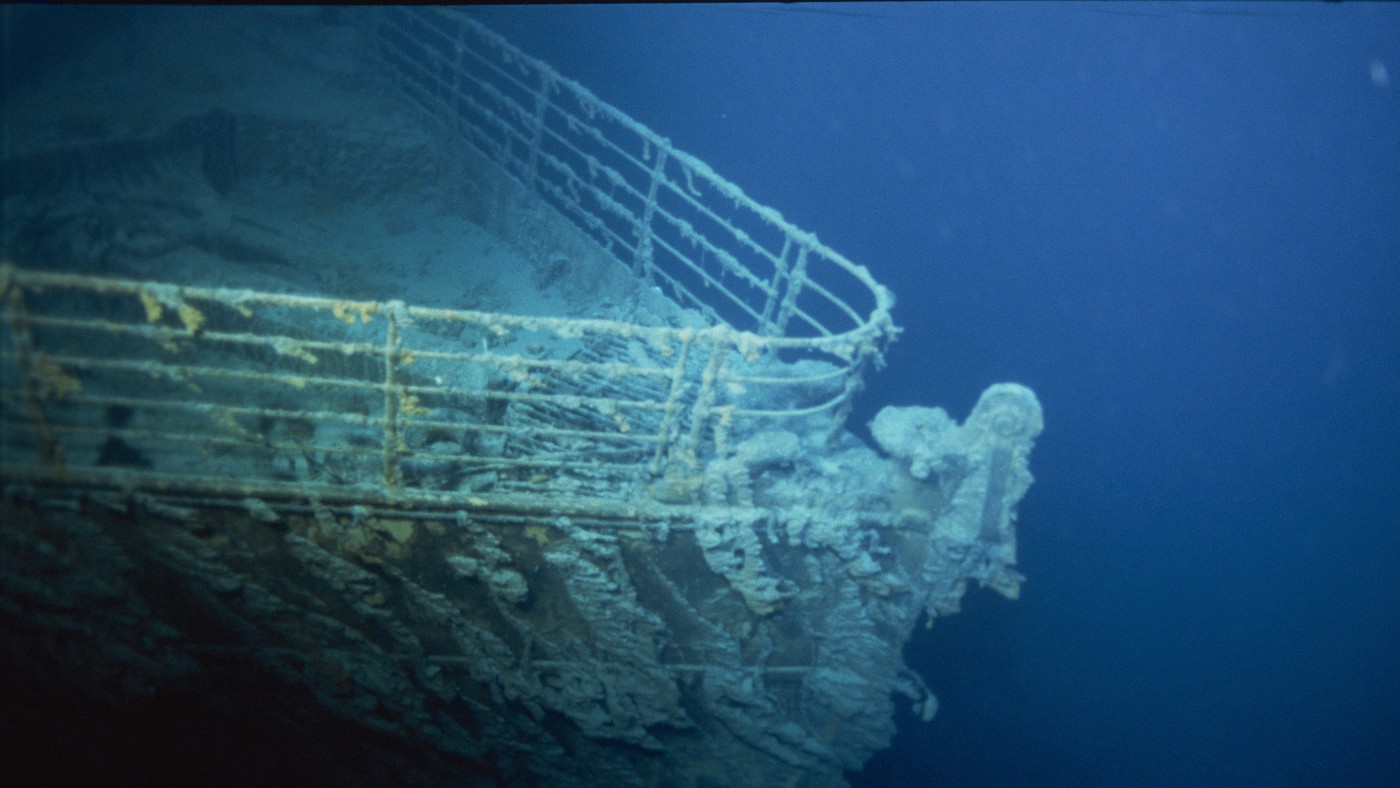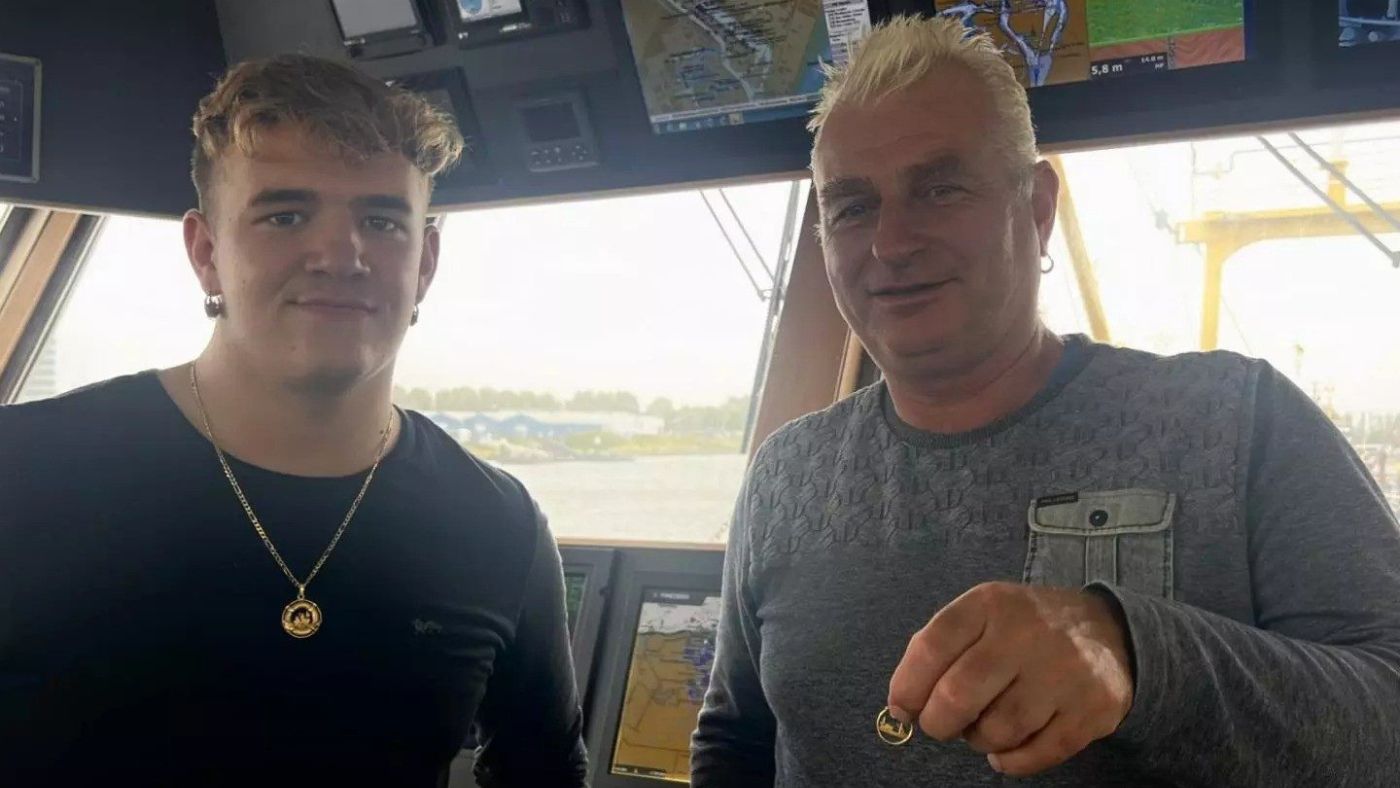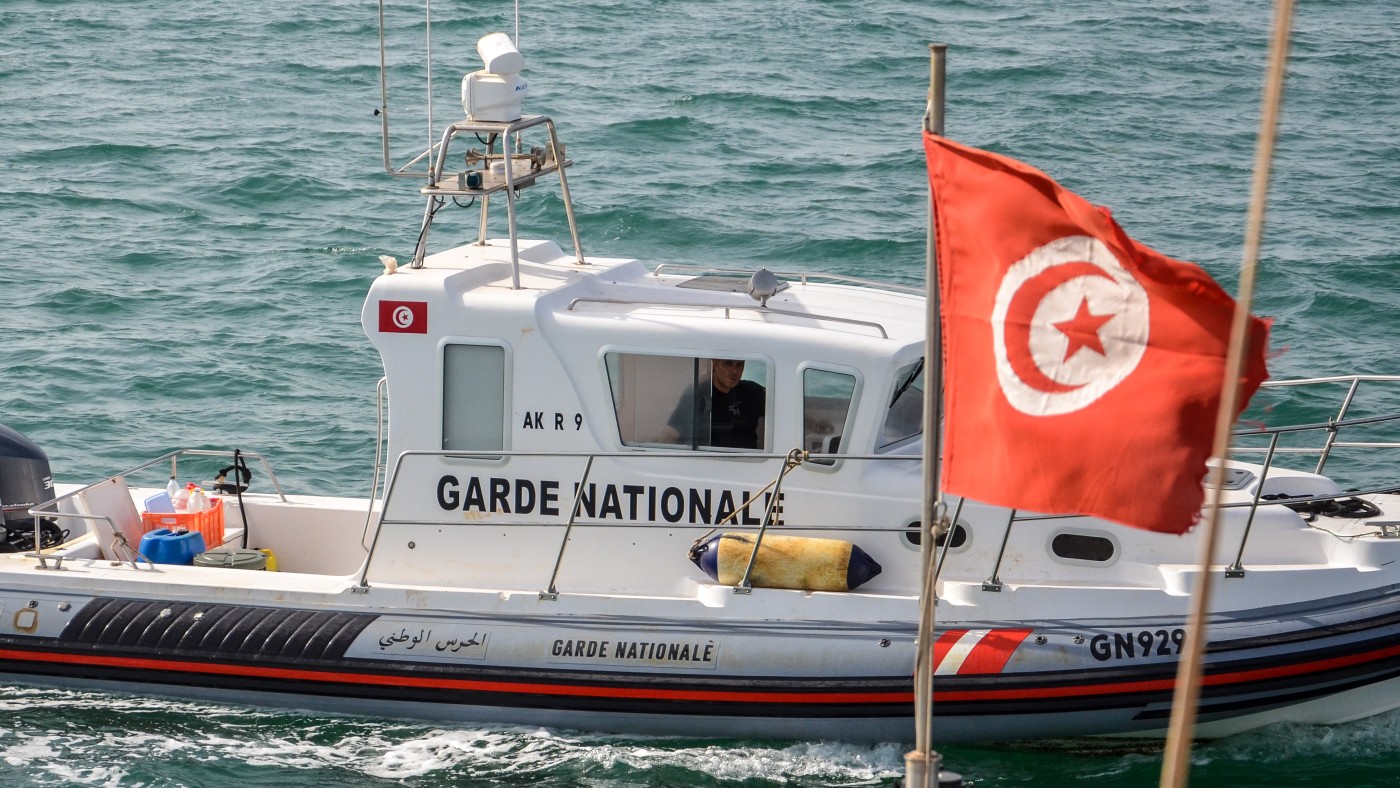Titan sub: how the doomed voyage gripped the nation
Few events grab the public imagination quite as firmly as a real-time people-in-peril story

A free daily email with the biggest news stories of the day – and the best features from TheWeek.com
You are now subscribed
Your newsletter sign-up was successful
It’s over a century since the great ship went down, plummeting more than two miles to the depths of the North Atlantic at speeds of 50kmh or more. But our fascination with RMS Titanic shows no signs of abating, said Ed Cumming in The Daily Telegraph.
Some 18 films have been made about the doomed liner, from 1912’s Saved from the Titanic, starring a Hollywood actress who had survived the sinking that year, to James Cameron’s Titanic (1997), the fourth highest-grossing film of all time; and more than 500 books have been written about it. Worldwide, there are seven museums dedicated to the ship, and artefacts associated with it fetch astonishing sums at auction: the violin that Wallace Hartley may have played as the liner went down sold for £900,000 in 2013.
Now, with the tragic loss of the Titan submersible last week, the spotlight has fallen on the elite end of the Titanic travel industry: the enthusiasts who pay a fortune for “privileged access” to the ghostly wreck itself – a site that had lain undisturbed for more than 70 years when it was discovered in 1985, and which “few on Earth will ever see”.
The Week
Escape your echo chamber. Get the facts behind the news, plus analysis from multiple perspectives.

Sign up for The Week's Free Newsletters
From our morning news briefing to a weekly Good News Newsletter, get the best of The Week delivered directly to your inbox.
From our morning news briefing to a weekly Good News Newsletter, get the best of The Week delivered directly to your inbox.
‘Real-time people-in-peril story’
In a post on social media last week, the billionaire British explorer Hamish Harding expressed delight that he was finally embarking on his trip to the Titanic, said the Daily Mail. Harding, the Surrey-based businessman Shahzada Dawood, 48, and his son Suleman, 19, had each paid £195,000 to catch a glimpse of the near mythical ship. They would have signed a disclaimer warning that the 22ft-long Titan was an uncertified “experimental” vessel, and that there was a risk of death. Yet Harding expressed confidence in the abilities of their guides: French submarine pilot Paul-Henri Nargeolet and Stockton Rush, whose firm OceanGate had built the submersible. Less than two hours after disappearing under the waves, however, the Titan lost contact with its mother ship, triggering a massive rescue operation, and a media frenzy.
As we saw when 12 boys were trapped in a cave in Thailand, “few events” in our 24-hour news era “grab the public imagination quite as firmly as real-time people-in-peril story”, said Andrew Anthony in The Observer. Yes, there was something “morbid” about our fascination with what the crew of the Titan might have been going through – sitting in the dark on the floor of a tiny vessel at the bottom of the ocean, with oxygen supplies dwindling; but what was being expressed was also a “collective wish to see human ingenuity and spirit to triumph”. This story did not end like the Apollo 13 mission, with an against-all-the-odds rescue. After four days, debris from Titan was spotted on the sea floor, and it emerged that the US navy had picked up a sound consistent with a catastrophic implosion at the time contact with the sub was lost. But until then, a miracle was what millions of people were hoping for.
‘A symbol of hubris’
That was not how it seemed, in the ugly space that is social media, said Jessica Gelt in the LA Times. We’re used to disasters generating dark jokes, but the tone of the posts last week was nothing short of gleeful – with a focus on the alleged hubris of the wealthy men who’d risked all for a vanity project. Admittedly, there is a lot to unpack about this story. Titanic itself has become a symbol of hubris, and known for exposing the base instincts of the rich; and the contrast between the reaction to the disappearance of the five adventurers, and the response to the loss of up to 680 lives in a stricken migrant vessel in the Mediterranean days earlier, was striking. Yet we should be able to hold both tragedies in mind at once.
True, said Arwa Mahdawi in The Guardian, but if any good can come of this one, let us hope it is that when the next boat carrying migrants capsizes, we make the same effort to save its passengers as we did for the men who went missing while visiting a shipwreck. For the relatives of those men, there is one consolation, said Eric Fusil on The Conversation. Their loved ones’ deaths will have been instantaneous. Inquiries are under way into the disaster, but several industry experts had warned Stockton Rush that his innovative design for the Titan was flawed. Most deep-water submersibles are spherical, and made from a single strong metal. Titan was cylindrical, to give it a bigger cabin, and made from titanium and carbon fibre. This combination made it lighter and cheaper, but these materials do not behave alike under pressure, and it is very likely that this was at the root of whatever defect caused it to implode, killing everyone on board in a fraction of a second.
A free daily email with the biggest news stories of the day – and the best features from TheWeek.com
The question now, said Andrew Wilson in The Guardian, is whether the loss of the submersible will end Titanic tourism, or generate a new wave of interest. Time will tell, but what is often forgotten is that Titanic is not just a wreck. It is a gravesite; and descendants of some of the 1,500 people who lost their lives on it have expressed a wish that the ship is now left in peace, in the dark silence of the deep ocean floor.
-
 Moltbook: The AI-only social network
Moltbook: The AI-only social networkFeature Bots interact on Moltbook like humans use Reddit
-
 Judge orders Washington slavery exhibit restored
Judge orders Washington slavery exhibit restoredSpeed Read The Trump administration took down displays about slavery at the President’s House Site in Philadelphia
-
 Kurt Olsen: Trump’s ‘Stop the Steal’ lawyer playing a major White House role
Kurt Olsen: Trump’s ‘Stop the Steal’ lawyer playing a major White House roleIn the Spotlight Olsen reportedly has access to significant U.S. intelligence
-
 Titanic VHS collector aims for one million copies
Titanic VHS collector aims for one million copiesTall Tales And other stories from the stranger side of life
-
 Earring lost at sea returned to fisherman after 23 years
Earring lost at sea returned to fisherman after 23 yearsfeature Good news stories from the past seven days
-
 Bully XL dogs: should they be banned?
Bully XL dogs: should they be banned?Talking Point Goverment under pressure to prohibit breed blamed for series of fatal attacks
-
 Netanyahu’s reforms: an existential threat to Israel?
Netanyahu’s reforms: an existential threat to Israel?feature The nation is divided over controversial move depriving Israel’s supreme court of the right to override government decisions
-
 Farmer plants 1.2m sunflowers as present for his wife
Farmer plants 1.2m sunflowers as present for his wifefeature Good news stories from the past seven days
-
 EU-Tunisia agreement: a ‘dangerous’ deal to curb migration?
EU-Tunisia agreement: a ‘dangerous’ deal to curb migration?feature Brussels has pledged to give €100m to Tunisia to crack down on people smuggling and strengthen its borders
-
 Manchester alleyway transformed into a plant-filled haven
Manchester alleyway transformed into a plant-filled havenfeature Good news stories from the past seven days
-
 China’s ‘sluggish’ economy: squeezing the middle classes
China’s ‘sluggish’ economy: squeezing the middle classesfeature Reports of the death of the Chinese economy may be greatly exaggerated say analysts